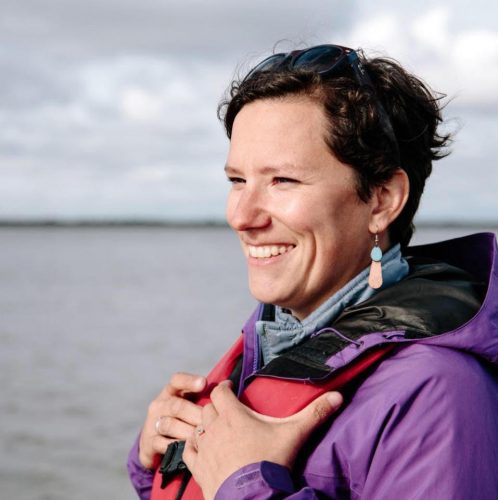Talk: 'When a Scientist Needs to Advocate'
November 11, 2019

Stephanie Quinn-Davidson will reflect on her decision to join the "Stand for Salmon" campaign and her experience with it, review the current debate on advocacy and science, and make a case for why scientists need to consider crossing that line. Quinn-Davidson is the director of the Yukon River Inter-Tribal Fish Commission. She will speak Wednesday, Nov. 13, from 3:30-4:30 p.m. in 201 O'Neill.
The talk is part of the weekly College of Fisheries and Ocean Sciences seminar. For more information, email Andy Seitz at acseitz@alaska.edu.
From the speaker: In the spring of 2018, I was approached by a grassroots voter initiative effort working to update Alaska’s salmon habitat laws. I signed on to the effort formally known as “Stand for Salmon” and became one of the three citizen ballot measure sponsors. While most scientists working for the federal or state government were prohibited to speak out about the voter initiative or take a public position on it, polls indicated the general public wanted to hear from scientists. My science background and career in Alaska as a salmon scientist – formerly with the Alaska Department of Fish and Game – quickly elevated me to one of the main spokespeople for the campaign. I had leaped over the advocacy line my graduate school professor told me never to cross. Advocacy is often considered a four letter word among scientists. However, given today’s political climate, more and more scientists are wading in to the realm of advocacy. This talk will offer a reflection on my decision to join and experience with the Stand for Salmon campaign, review the current debate on advocacy and science, and make a case for why we all, as scientists, need to consider crossing that line.


